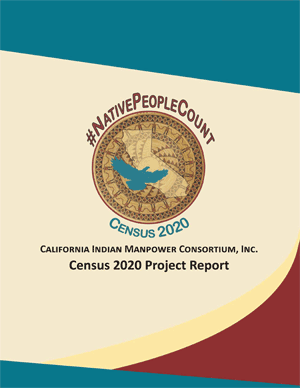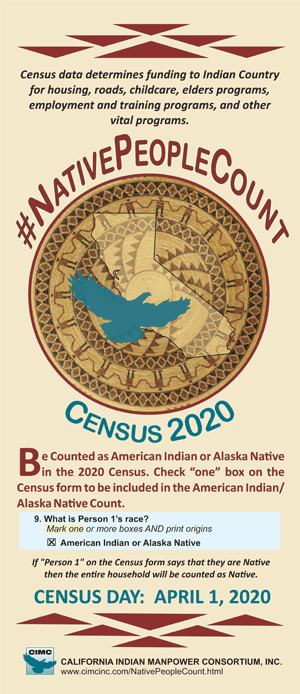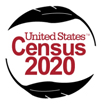California Indian Manpower Consortium, Inc.
The CIMC Movement: Creating Positive Change for Native Communitiespro_ccc
CENSUS 2020 RESOURCES
#NativePeopleCount
Self-response and field data collection operations for the 2020 Census ended on October 15, 2020.
Census 2020 Project Report - released March 27, 2021
Census 2020 Informational Packet
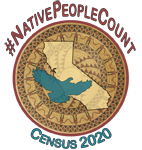 |
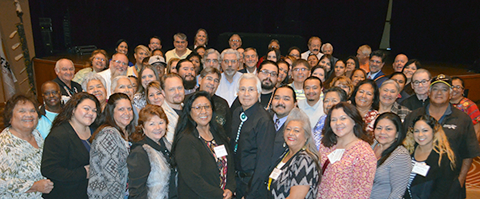 |
|
|
 Why Should You be Counted in
the 2020 Census?
Why Should You be Counted in
the 2020 Census?
Being counted as Native will directly benefit you, your family and your tribal community. The census taken every ten years is the only uniform count of the U.S. population, producing figures for the nation as a whole and for every geographic area within it down to the smallest American Indian reservation and Alaska Native village. The census is the only source of this kind of data, with thousands of uses that benefit all American Indians and Alaska Natives. Just a few of the potential uses of census data include:
- Analyzing the need for Head Start services in each area of a reservation.
- Planning the development of facilities for tribal elders.
- Strengthening programs for tribal members living in the big cities.
- Helping tribal government agencies and tribally-based nonprofits to raise money.
- Building political clout.
- Supporting reservation economic development.
2020 Census: Nonresponse Followup
Responding to the 2020 Census Without a Census ID Code
Census 101: What You Need to Know
How the 2020 Census will invite everyone to respond
2020 Census and Confidentiality
Counting Young Children in the Census
The 2020 Census is accessible for everyone
Counting People Experiencing Homelessness
2020 Census Informational Questionnaire
Non-Response Follow-Up + Mobile Questionnarre Assistance
Indian Country Counts - Our People. Our Nations. Our Future. - NCAI 2020 Census Toolkit (December 2019)
Why is Important for Tribal Community Members to Respond to the 2020 Census?
Native People Count California Toolkit (February 2020)
Questionnaire Tips (February 2020)
Census Impact on Tribes (February 2020)
CA Census | Be Counted, California!
U.S. Census Bureau/Tribal Affairs
Census Policy Advocacy Network (CPAN)
CIMC Complete Count - Census 2020 Project
CIMC Census Information Center
Census closes on September 30th - Be Counted! Time is Running Out - Northwest Intertribal Census Workgroup (September 23, 2020)
Census2020 ACT NOW! Time is Running Out! - Northwest Intertribal Census Workgroup (September 22, 2020)
A complete count includes our brothers and sisters away from home (group quarters) - Northwest Intertribal Census Workgroup (June 11, 2020)
Social Distance Powow - US Census Bureau (June 1, 2020)
How to fill out Census 2020 - Native People Count - Northwest Intertribal Census Workgroup (May 7, 2020)
Today is Census Day, April 1, 2020 - California Indian Manpower Consortium, Inc. (April 1, 2020)
2020 Census PSA: Native Voice - Shoshone Bannock Tribes (March 5, 2020)
2020 Census PSA: Native Voice - Shoshone Bannock Tribes (March 5, 2020)
Be Counted Census2020 - Northwest Intertribal Census Workgroup (February 26, 2020)
2020 Census: National Congress of American Indians Representatives - US Census Bureau (December 20, 2019)
Southern California Tribal News - SCTCA (December 1, 2019)
2020 Census PSA: Who Am I? - US Census Bureau (November 7, 2019)
Be Counted in the 2020 Census - California CCC (October 7, 2019)
CIMC Executive Director - CA Census 2020 Call to Action Press Briefing (April 2019)
Native News Online: Olympic Gold Medalist Billy Mills Asks U.S. Senate to Reinstate 2020 Census Period to Oct. 31 (September 16, 2020)
Native People Count California: The Historical Importance of Being Counted: Census Count Heroes (September 12, 2020)
Native People Count California: Making Sense of the 2020 Census through the Voices of Native Veterans in California (September 1, 2020)
San Diego Union Tribune: Commentary: The census will help keep our Kumeyaay culture, language and history alive. Here's how. (August 21, 2020)
Huffington Post: 'Devastating': The Census Bureau is About to Severely Undercount Tribes (August 15, 2020)
indianz.com: Kayla Hilario: Let's Not foret Tribal history as we complete the Census (August 13, 2020)
Native News Online: The U.S. Census 2020: Stepping Up Outreach Efforts in Indian Country (August 9, 2020)
Washington Post: Census Bureau say counting will end a month earlier than planned (August 3, 2020)
Smithsonian Magazine: COVID-19 Adds a New Snag to the 2020 Census Count of Native Americans (June 23, 2020)
San Diego Union-Tribune: Commentary: The U.S. give Native Americans a voice on jobs, land, economy (May 17, 2020)
The Census Project: Native American Participation in 2020 Census - H. Res. 872 (April 21, 2020)
Richmond Pulse: California Tribes Hold Festive Launch for 2020 Census(March 12, 2020)
Indian Country Today: Three national Native American organizations partner for historic census initiative (February 28, 2020)
Partnership with Native Americans: The Importance of the 2020 Census for Native Americans (February 19, 2020
The Guardian: 'We are still here': Native Americans fight to be counted in US Census (January 15, 2020)
NBC News: Native Americans, the census' most undercounted racial group, fight for an accurate 2020 tally (December 29, 2019)
Rewire News Group: Paper Genocide: The Barriers to an Accurage Count of Native People in 2020 (December 10, 2019)
Rewire News Group: Paper Genocide: The Erasure of Native People in Census Counts (December 9, 2019)
U.S.News: Where Most Native Americans Live (November 29, 2019)
MTV News: How Young Native Americans are Using the Census to Make their Communities Heard (July 15, 2019)
Census.gov: Tribes form Complete Count Committees to Promote Census Particiation (June 25, 2019)
Desert Sun: Torres Martinez Tribe prepares for census count in 2020 (June 14, 2019)
The Washington Post: Census, tribal leaders push for American Indian Participation in 2020 Census (June 14, 2019)
Los Angeles Times: The 2020 census is coming. Will Native American be counted? (June 13, 2019)
The Bay State Banner: Reversing census undercount in Indian Country (May 24, 2019)
Indian Country Today: Census is less than a year away: A better count is essential for Indian Country (April 9, 2019)
CENSUS 2020 INFORMATIONAL SESSION - November 1, 2019
POWERPOINT PRESENTATIONS:
- California Complete Count Census 2020
- U.S. Census Bureau
- NUNA Consulting Group
- California Native Vote Project
- CIMC California Complete Count Census 2020 Project
- Consortium for California for Urban Indian Health
- United Indian Nations
- Owens Valley Career Development Center
- Southern California American Indian Resource Center
- Northern California Indian Development Council
- Effective Outreach Strategies for Hard-to-Count Communities_Norm DeWeaver
For information about CIMC events,
visit CIMC Upcoming Events Calendar.
Your generous contributions will help CIMC Create Positive Change for Native Communities - A 501(c)(3) Nonprofit Organization since 1978 - Tax ID #94-2472564 |
